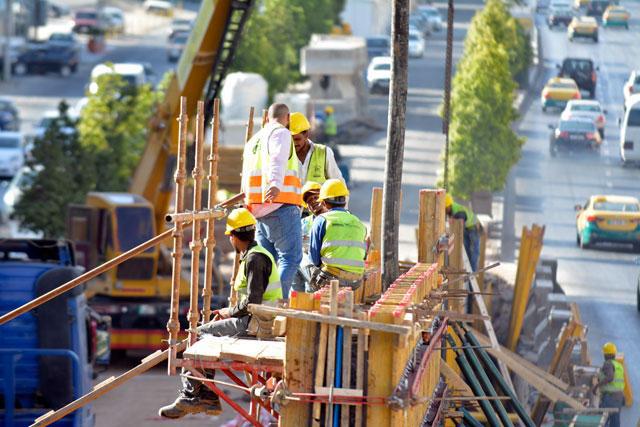You are here
Draft labour law under fire from civil society organisations
By Bahaa Al Deen Al Nawas - Feb 10,2020 - Last updated at Feb 10,2020

The Labour Ministry is implementing programmes in the fields of employment, labour market regulation and providing more legal protection for workers through stringent penalties for violations of the Labour Law (JT file photo)
AMMAN — The amendments to the Labour Law proposed by the government, which have been referred to the Lower House, are “not compatible with the market”, several civil society institutions said in a statement sent to The Jordan Times on Monday.
The institutions claimed that the amendments were made without holding discussions with civil society representatives and “are not based on a comprehensive view of the main requirements for labour legislation reform”.
“The reform should be done through a comprehensive national review based on a national dialogue that guarantees the benefits of the involved parties and meets national requirements and international standards of labour,” the statement said.
The civil society institutions urged Parliament to return the draft law back to the government for a second review, calling on the government to enact comprehensive reforms of the Labour Law's articles to gain wider acceptance from all partners before referring it back to Parliament.
According to the statement issued by the organisations, amendments to the Labour Law should provide social protection as a basic right for workers, with rights agreed upon by a three-party system comprising workers, business owners and the government.
The comprehensive reform should also ensure that all workers in all sectors, including unorganised labourers, have a proper work environment, abolishing forced labour and child labour, the statement said, adding that the amendments should boost social dialogue, protect the right to form unions and increase women’s participation in the economy.
According to the statement, the amendments should respect labour standards related to working hours, weekends, official days off, sick leaves, safety and professional health standards.
The draft law comes in implementation of Labour Ministry programmes in the fields of employment, labour market regulation and providing more legal protection for workers through stringent penalties for violations of the Labour Law.
The amendments also aim to prevent and control the entry of foreign labour into the Jordanian market and incrementally substitute the vacuum with Jordanian labour.
The most prominent amendments are related to supporting the employment of Jordanians in the private sector and helping them find a decent work environment, as many amendments were made to ensure the empowerment and employment of women, Labour Minister Nidal Bataineh said earlier in January.
He added that the draft law also aims to increase the penalty for violators, whether they work without permits or beyond what is permitted to them or for another sponsor.
A clause was also added to define sexual harassment in the workplace, meaning that the draft law can be evoked in the event of harassment, resulting in the layoff of the violating worker without notification.
The statement was signed by the Phenix Centre for Economic and Informatics Studies, Workers’ House, Tamkeen Fields for Aid, Justice Centre for Legal Aid, Adaleh Centre for Human Rights Studies, Lawyers Without Borders and the Arab Renaissance for Democracy and Development.
Afaq Jordan for Development and Training, the Arab Women's Association in Jordan, the General Federation of Jordanian Trade Unions, the Centre for Defending the Freedom of Journalists and the Jordanian Youth Gathering, Tasharuk, have also signed the statement.
Related Articles
AMMAN — The Jordan Labour Watch on Saturday issued a statement in cooperation with the Phenix Centre for Economic and Informatics Studies, c
AMMAN — Women activists and economists praised recent Parliamentary amendments for their envisioned role in safeguarding the well-being of f
AMMAN — The International Labour Organisation (ILO) and UN Women launched a campaign across social media platforms to bring awareness to the












